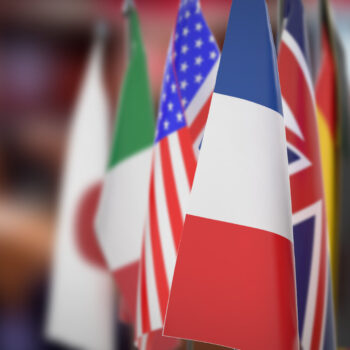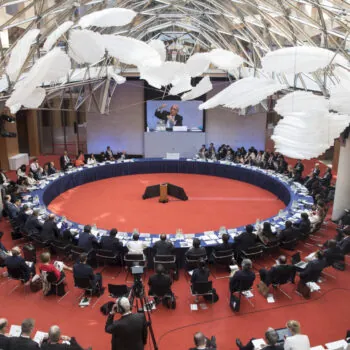As we navigate turbulent geopolitical waters where emboldened regressive forces challenge multilateralism, climate change is one place where international cooperation still prevails. But climate impacts and climate-related security risks could threaten this carefully balanced global consensus.
A reality which it seems has not gone unnoticed by the EU’s Foreign and Security Policy Chief Federica Mogherini. On June 22nd she will host a summit ‘Climate, Peace and Security: The Time for Action’. The Summit will bring together ministers and leading international figures to discuss and outline what can be done to strengthen cooperation on climate-related security risks.
A neglected reality
Climate security is not a new concept, but today the effects of climate change on countries security and prosperity are becoming an ever-increasing reality. It is no longer a hypothetical concept to motivate climate action. It is a reality that is changing the peace and security landscape. Climate remains a bastion of multilateralism, where despite the US announcement of their intent to withdraw from the Paris Agreement the world rallied and remained focused on delivering low carbon resilient transition. But to keep it this way urgent international cooperation is required to make our institutions fit for purpose in a climate-changed world.
For decades countries met at UN climate negotiations to strike a deal that could reduce emissions and limit warming. In Paris 2015, the world succeeded. Discussions over adapting to climate impacts did feature at UN talks but adaptation and loss & damage were the poor cousin of climate mitigation, receiving less attention and political investment.
The Paris Agreement seeks to balance the mitigation and impacts side of the UN regime. But policy to address impacts is far behind that on mitigation. What’s more, the hybrid make-up of the regime – nationally determined but collectively focused – means that cooperation on impacts which don’t fit neatly in national boarders remains unaddressed.
Next steps for climate multilateralism
Meanwhile, fragile countries are in danger of becoming stuck in a cycle of conflict and climate disaster that they may not recover from. In Iraq and Syria, at moments when droughts are more severe and water shortages affect drinking water supplies and the ability to grow food and support livelihoods, support for terrorist groups peaks. In the Caribbean, more frequent and intense cyclones rollback progress on social and economic development and dent credit rating year on year, correlating with recent upticks in violent crime. Cycles of conflict and climate are eroding community resilience and leaving countries exposed to exploitation and violence. It should be no surprise that many people choose to flee.
We can no longer hope that we can simply adapt to any climate change; and we cannot afford to forget that the aim of limiting warming to 1.5°C is a matter of national and international security. Our logics for achieving peace are fraying. In Yemen, we have seen conflict return when the rains fail, and agriculture livelihood strategies cannot deliver stability. In Somalia, we have seen extreme weather inhibit access to resources, exacerbate inequality and spark political unrest. Attempts at peace which neglect climate fragilities are destined to fail.
The United Nations as the primary vehicle for peace and security must take steps to reform. This means providing better climate-risk analysis to decision-makers: on early-warning, integrating into conflict reporting, and by offering insights for programming. In short, the UN needs the tools to Predict, Prevent and Prepare for climate-related security risks.
The Secretary General’s Climate Summit in September 2019 will be a crucial moment to make progress on this agenda. It should send a clear message of political intent that the world is taking climate impacts seriously and coming together to address them.
The role of the EU
At home and in the neighbourhood, the EU must also play its part and make good on the promise of the EU Global Strategy. The Mediterranean and MENA regions are amongst the most exposed to climate-related risks, yet we are not adequately assessing and acting on them. A Mediterranean-MENA taskforce to conduct a climate-related risk assessment and propose management strategies would be a prudent first step.
Moving forward all the EU’s foreign and development policy should be assessed against emerging climate-related security risks as well as the consequences of decarbonisation. Here the EU Foreign Affairs Council can play a stronger role, mobilising Foreign and Development Ministers to inform the work of the incoming 2019 EU Commission as well as Member State activities.
Undermanaged climate impacts should not be under estimated. The material and political impacts will be vast. Investment in international cooperation on climate impacts is an investment in maintaining international cooperation and rules both on climate and more generally. The EU cannot afford to take climate impacts lightly, at home or abroad.


